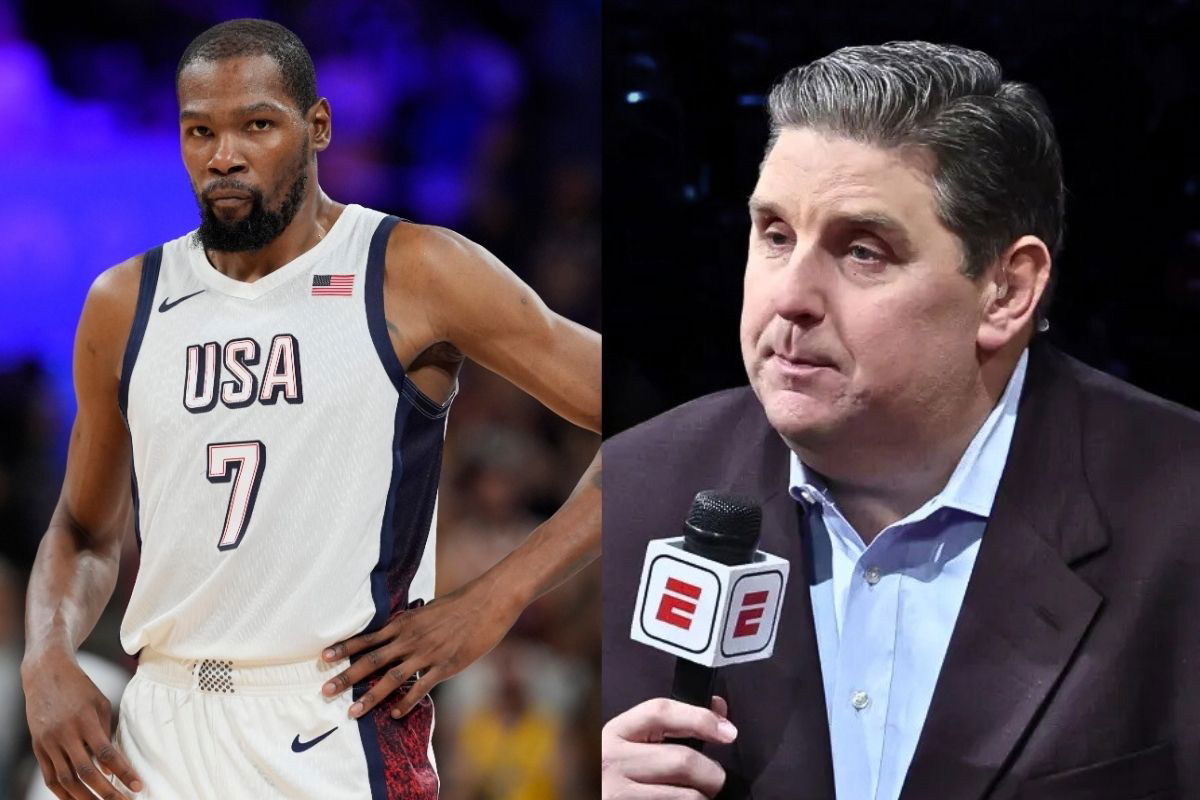
Imago
Image Credits: IMAGN

Imago
Image Credits: IMAGN

Imago
Image Credits: IMAGN

Imago
Image Credits: IMAGN
Phoenix’s decision to explore trading Kevin Durant has ignited a whirlwind in the NBA, triggering a scramble from contenders hungry for a transformative superstar. Durant’s 26.6 PPG elite scoring, alongside his expiring $194 million contract (4 yrs), makes him a unique asset—one that suits contending teams and those rebuilding with ambition. The Suns face the dual challenge of leveraging his value while keeping enough flexibility to address long-term needs after a down season. Among those “usual suspects,” the Cleveland Cavaliers had initially flown under the radar.
Watch What’s Trending Now!
Cleveland, fresh off a 64‑win season and the Eastern Conference’s top seed, is rapidly approaching the NBA’s second luxury tax apron—a hard ceiling that begins around $207 million in committed salaries. Defensive Player of the Year Evan Mobley’s escalator clause alone hikes their payroll by roughly $8 million, taking them $12 million+ over that threshold. Once above the apron, Cleveland faces strict restrictions: no sign-and-trades, no mid-level exception, no aggregating salaries in trades, and limited draft-asset movement.
Yet the Cavaliers carry undeniable appeal. Anchored by Donovan Mitchell, Mobley, and Darius Garland—plus coach Kenny Atkinson’s system—the team is built for contention. With Garland and Allen rumored to be movable, they hold trade pieces that could balance salary and talent in a Durant deal. Durant’s expressed preference for teams like Cleveland, who match his competitive desire and already possess Eastern upside, only amplifies the intrigue. Against this backdrop, ESPN’s Brian Windhorst stepped onto ESPN Cleveland and was asked point-blank: “Are the Cavs involved in Kevin Durant conversations?”
His response—“I don’t think they’re involved now.” Further questions—about past discussions, third-team feasibility, and future engagement—elicited the same guarded repetition: “I don’t think they’re involved now.” It was not a flat denial, but a deliberate qualification, suggesting Cleveland has at least scoped the opportunity, always emphasizing now. This wasn’t a denial of any look-in; it was a careful reflection of potential scouting, preserved informality, and the Cavs’ still-open positioning in the market
That singular qualifier, “now,” is revealing. It honors Cleveland’s financial reality—once above the second apron, every move is constrained. Yet, by not saying never, Windhorst concedes that Cleveland has assessed Durant’s value and may yet engage opportunistically—possibly as a third-party facilitator or under shifting cap conditions. It’s a nuanced message: not active yet, but fully in play, contingent on cap relief or market shifts.
While Cleveland’s involvement hangs in limbo, another unexpected contender has emerged—one with a reigning MVP, a recent championship, and perhaps the most tantalizing basketball fit for Durant’s unique skill set.
Kevin Durant to Denver? A High-Risk, High-Reward Trade Scenario
During a recent segment on Yahoo! Sports, analyst Kevin O’Connor named the Denver Nuggets among his most intriguing dark horse trade candidates for Kevin Durant. While names like Minnesota, Toronto, and Orlando have circulated in other reporting circles, O’Connor threw Denver into the mix, acknowledging up front: “I don’t know if I have enough, though. That’s the only thing.” The hypothetical package he proposed includes Michael Porter Jr., Peyton Watson, Julian Strawther, Hunter Tyson, and a 2031 first-round pick, with Zeke Nnaji routed to a third team. The logic? Durant would represent an undeniable upgrade over Porter Jr., a talented scorer who’s been inconsistent—especially on the defensive end—throughout his postseason career.
From a basketball standpoint, the pairing is mouthwatering. Nikola Jokic’s transcendent playmaking—averaging 9.0 assists last season—could elevate Durant’s efficiency to historic levels. Denver already boasts the league’s most intelligent offensive ecosystem; swapping Porter for Durant would add a three-level scorer capable of taking over games without disrupting flow. “I love the idea of KD there as an upgrade over MPJ,” O’Connor emphasized, envisioning a Last Dance-style title run for the Nuggets. However, the trade comes with massive risk. Denver would be sacrificing key depth and flexibility for a player with injury history, entering his age-36 season, and potentially eyeing free agency sooner rather than later.
Even O’Connor admitted, “I just don’t think it’s enough”—a sentiment echoed around the league. Phoenix is reportedly holding firm on Durant’s value, reluctant to take back role players or long-term projects unless Durant explicitly pushes for the move. The Suns want either star power or maximum future flexibility, and Denver’s 2031 pick—while distant—is unlikely to outweigh the proven upside of an All-Star. Still, the concept of Durant in Denver adds fascinating stakes to an already volatile offseason. If the Nuggets were to consider such a swing, it would signal a win-now urgency, a willingness to gamble short-term continuity for historic upside.

